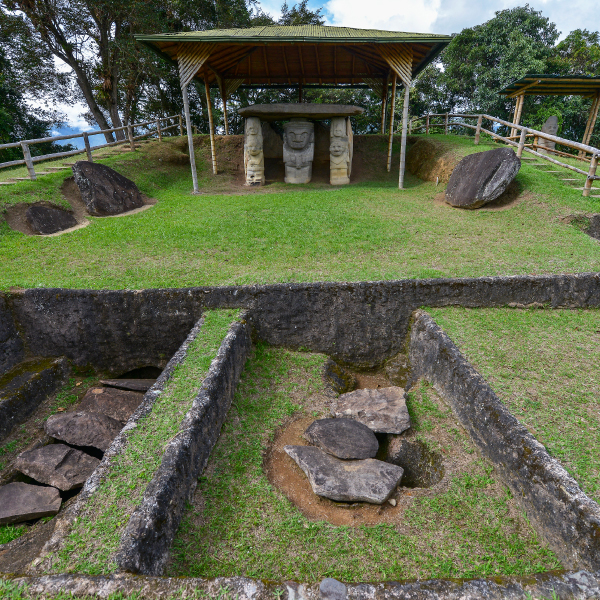
The Ministry of Culture, Arts, and Knowledge has published for comments the draft Decree intended to replace Part VI of Decree 1080 of 2015 (recently modified by Decree 138 of 2019) to protect the country's archaeological heritage by including new types of archaeological interventions, expediting the response of the Colombian Institute of Archaeology and History (hereinafter "ICANH") to requests for approval of Preventive Archaeology Programs, regulating the declaration of Protected Archaeological Areas, and adopting a technological platform to identify sites and Protected Archaeological Areas.
According to the draft Decree, the definition of archaeological heritage includes all "vestiges of human activity and those organic and inorganic remains that, through the methods and techniques of archaeology and related sciences, allow the reconstruction and dissemination of past sociocultural origins and trajectories and ensure their conservation and restoration," which complements the traditional definition included in Decree 1080 of 2015.
The draft Decree establishes that ICANH is the only entity authorized by legal provisions to apply the archaeological heritage management regime, being the entity responsible for authorizing the intervention of archaeological heritage, declaring Protected Archaeological Areas, approving Archaeological Management Plans, and applying the sanctions derived from the sanctioning regime contemplated in Law 397 of 1997 as amended by Law 1185 of 2008.
In addition to provisions related to the obligations of notifying and possessing archaeological heritage and obligations regarding the fortuitous discovery of Archaeological Heritage, the draft Decree includes provisions on the declaration of Protected Archaeological Areas and the intervention of archaeological heritage, which had been added by Decree 138 of 2019.
Regarding Protected Archaeological Areas, the draft Decree expands the definition, establishing that they are special areas declared by ICANH, which may establish special protection measures to regulate, delimit, and define permitted and prohibited activities to ensure long-term preservation and to carry out actions for the research, dissemination, and conservation of archaeological heritage.
It is important to note that the draft Decree establishes that Protected Archaeological Areas will be considered third-level determinants when preparing or modifying land use planning instruments for municipalities, districts, or departments, which is a significant change from Decree 138 of 2019.
In cases where there is an overlap of Protected Archaeological Areas with SINAP Protected Areas, areas of special ecological importance, or strategic ecosystems, the draft Decree states that the Archaeological Management Plan of the respective Protected Archaeological Area must harmonize its content with these environmental management categories to ensure that both instruments (archaeological and environmental) function complementarily to guarantee the protection of natural resources as well as archaeological heritage.
Regarding interventions on archaeological heritage, the draft Decree includes different types of intervention, modifying and adding to those contemplated in Decree 138 of 2019, specifically considering:
- Archaeological Intervention for academic research
- Archaeological Intervention for the Implementation of Management Measures
- Interventions of fortuitous findings
- Scientific Interventions in disciplines other than archaeology
According to the draft Decree, it will be ICANH's responsibility to regulate, through terms of reference, the procedures applicable to each type of intervention contemplated in the draft Decree. The draft regulation indicates that no procedure may exceed 30 days.
Finally, regarding Preventive Archaeology Programs, the draft Decree states that the administrative act approving the registration of a Preventive Archaeology Program, or the technical opinion issued by ICANH indicating the non-necessity of carrying out the program, are the only documents that comply with numeral 8 of Article 2.2.2.3.6.2 of Decree 1076 of 2015 in relation to the requirements for applying for an environmental license.
The draft Decree fully replaces Part VI of Decree 1080 of 2015 (which had been modified by Decree 138 of 2019) by including provisions aimed at clarifying some aspects regarding the preventive archaeology program and its scope of application, specifically for projects, works, or activities that require an environmental license or are subject to Environmental Management Plans, specifying that it will be required in cases of modification of these environmental management instruments.
The draft Decree is open for comments until June 28, 2024.
If you have any questions regarding the draft Decree, its impact on your project, work, or activity, or require assistance in formulating comments, do not hesitate to contact the Environment and Sustainable Business team at Brigard Urrutia.